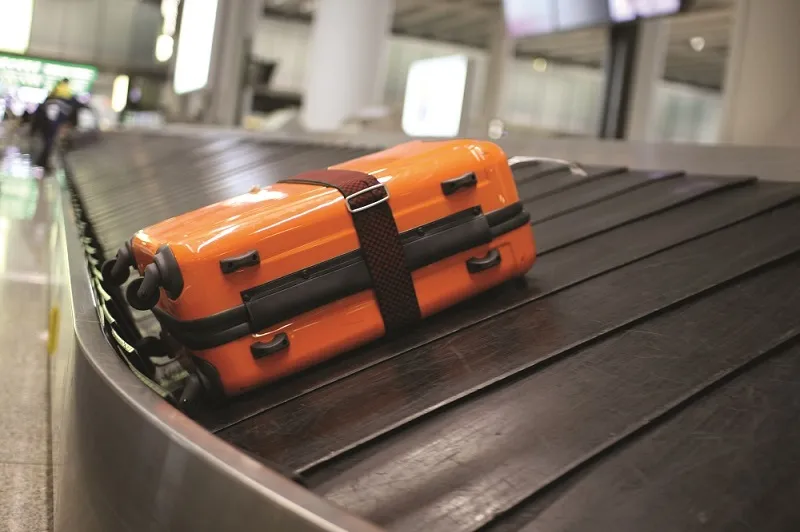
Major US carriers join rush to boost checked bag fees
Sep 22, 2018

Major US airlines are increasingly implementing higher fees for checked baggage as they seek to bolster revenue in a competitive market. This trend follows a broader strategy to enhance profitability amid rising operational costs and fluctuating travel demand. Carriers are adjusting their pricing structures, making checked bag fees a significant revenue stream. As travelers face these additional charges, the industry is witnessing a shift in consumer behavior, with many opting for carry-on luggage to avoid fees. This move highlights the ongoing challenges airlines face in balancing customer satisfaction with financial sustainability in a post-pandemic travel landscape.
Overview of Checked Bag Fees
In recent years, major US carriers have increasingly turned to checked bag fees as a significant revenue stream. This trend reflects a shift in how airlines balance operational costs while attempting to keep base fares attractive to consumers. The introduction of these fees has prompted discussions about the impact on travelers and the airline industry as a whole.
Why Airlines are Increasing Checked Bag Fees
The primary reason airlines are boosting checked bag fees is the need to maintain profitability amidst rising operational costs. Fuel prices, labor costs, and inflation have all contributed to the financial pressures faced by carriers. By implementing or increasing fees for checked luggage, airlines can enhance their revenues without inflating ticket prices to the same extent.
Moreover, the trend towards charging for checked bags encourages passengers to be more mindful of their luggage, potentially decreasing the number of bags checked overall. This can lead to quicker boarding times and less congestion in baggage claim areas.
Current Checked Bag Fee Structure
Below is a table showing the current checked bag fees for major US airlines:
| Airline | First Bag Fee | Second Bag Fee | Third Bag Fee |
|---|---|---|---|
| American Airlines | $30 | $40 | $150 |
| Delta Airlines | $30 | $40 | $150 |
| United Airlines | $35 | $45 | $150 |
| Southwest Airlines | No fee | No fee | No fee |
The Impact on Travelers
For many travelers, the increase in checked bag fees can add unexpected costs to their travel plans. Passengers may find themselves weighing the benefits of checking a bag against the added expense. Budget-conscious travelers are particularly affected by these fees, which can significantly increase the overall cost of air travel.
Additionally, the rise in checked bag fees has prompted many travelers to reconsider their packing strategies. Carry-on luggage has become more popular as passengers try to avoid these fees, leading to an increase in the number of larger carry-on bags being brought aboard. This, in turn, can lead to overhead bin space issues and added stress during boarding.
Airline Strategies to Compete
As the competition among airlines intensifies, some carriers are adopting different strategies to attract customers. For instance, Southwest Airlines stands out by not charging for checked bags, which has become a significant selling point for the airline. This approach appeals to families and travelers who prefer the convenience of checking luggage without the additional costs.
On the other hand, major airlines that charge for checked bags often offer loyalty programs or credit card partnerships that can mitigate these fees for frequent flyers. These strategies allow airlines to retain loyal customers while still capitalizing on the revenue generated through checked bag fees.
The Future of Checked Bag Fees
As the airline industry continues to evolve, checked bag fees will likely remain a fixture of air travel. With rising operational costs and changes in consumer behavior, airlines may further refine their fee structures. Travelers can expect ongoing adjustments to baggage policies, particularly as airlines explore new ways to maximize revenue without driving away customers.
Moreover, the impact of economic factors—such as inflation and fluctuating fuel prices—will continue to play a pivotal role in how airlines approach checked bag fees. The balance between maintaining competitive pricing and managing operational costs will be crucial for airlines as they navigate the future of air travel.
Conclusion
In summary, the recent surge in checked bag fees among major US carriers underscores the challenges and shifts within the airline industry. As airlines seek to boost revenue, travelers must adapt to the changing landscape of air travel costs. Understanding the implications of these fees can help consumers make informed decisions and prepare for their future travel experiences.
With evolving strategies and ongoing competition, the dynamics of checked bag fees will undoubtedly continue to shape the travel experience. Airlines and travelers alike will need to remain vigilant as they navigate this ever-changing environment.
Related Articles

Explore Thailand: The Best Islands to Visit for Paradise, Adventure, and Relaxation

The Ultimate Guide to the Best Islands in Thailand for Your Next Getaway

Do babies need passports? How to get a passport for a newborn

How to get a U.S. passport fast: here’s how to expedite the process

What is Mobile Passport Control: 5 reasons why you should use it

SENTRI vs. Global Entry: A detailed guide

Do you need a passport to go to the Bahamas? Let’s find out

Do you need a passport to go to Mexico? A detailed guide

Do you need a passport to go to Canada? We got the answer

Do You Need a Passport for a Cruise: An Essential Travel Guide

Booster Seat Requirements: All the Rules to Follow in Your Rental Car

What Are the World’s Most Powerful Passports, and How Does Yours Rank?

How to Take a Passport Photo at Home: A Helpful Guide

You've got to have heart! Southwest's new livery

Your opinion: Should water be free on low cost carriers?

Young women bolder than guys as solo travellers
